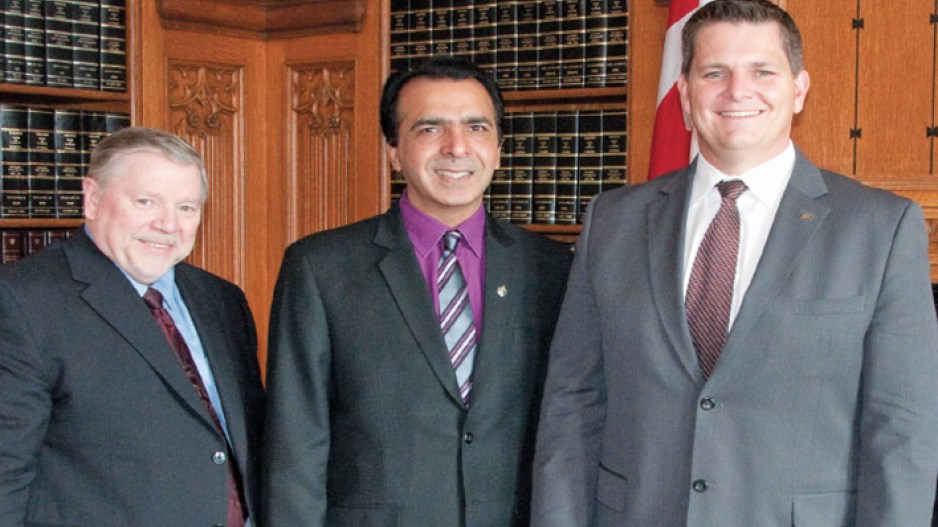As the Asia-Pacific market continues to expand, B.C.’s Fraser River stakeholders want to grab a larger share of the opportunities being generated by the region’s economic growth.
Fraser Surrey Docks LP (FSD) chief executive officer Jeff Scott recently returned from Ottawa, where he led a delegation of customers and supply chain partners to raise awareness of the trade and logistics potential of the docks and the river’s importance to the Canadian economy. Now in South Korea and previously in Japan, Scott is meeting with FSD customers about their break bulk cargo business.
“Demand for Canadian goods is growing, especially in the Asia-Pacific,” said Scott. “B.C. is well positioned to take advantage of that opportunity, but our limiting factor is port capacity with efficient access to existing infrastructure.”
But he said that with ample industrial land still undeveloped in the region, action to take advantage of its trade potential is needed now.
“Our window of opportunity is closing as the global market will find ways to fill demand with or without B.C. ports. We are already seeing the movement of Canadian goods through U.S. ports, and this trend will continue if we don’t find efficient options quickly.”
The Fraser River, which runs over 1,300 kilometres, is B.C.’s largest river. Administration of the Fraser River port facilities falls under federal jurisdiction. Scott hopes his recent trip to Ottawa will help increase the port’s profile in a highly competitive business sector. His delegation met with Transport Minister Lisa Raitt, Minister of National Revenue Kerry-Lynne Findlay and representatives from the prime minister’s office and the finance, infrastructure and international trade ministries.
“Fraser Surrey is the only deep-sea marine terminal in Surrey and has been providing direct access to and from markets around the globe for the last five decades. We believe we can continue to provide direct and cost-effective options to local businesses by providing access to the world. This supports the ability for people to live, work and play right here in their own communities,” said Scott.
Ray Hudson, the Surrey Board of Trade’s policy manager, joined Scott on the Ottawa trip. He said its goal was simple: raise federal government awareness of Fraser River port facilities’ trade potential.
“It’s about the competition for attention, by all the children in the playground. We want to justify the value of what we’ve got here to the people back there who are making the decisions.”
FSD bills itself as the largest modern, multi-purpose marine terminal on North America’s west coast. It handles between 250 deep-sea vessels annually at seven berths, supported by 63 hectares of yard area and four sheds.
It also has four dock gantry cranes and a hydraulically operated ramp services barge.
While FSD moves millions of tonnes of cargo per year, Hudson said many people don’t know it exists.
“We’re not sure people pay a lot of attention to the Fraser River, even those people who live beside it. It’s just sort of there, and until there’s some reason to pay attention to it, most people don’t.”
Scott hopes the promise of economic benefit for the entire region from the port will raise its profile among local residents.
“Over the last five years, Fraser Surrey Docks has spent over $80 million on supplies and services from local businesses in the Lower Mainland, of which just over $15 million was spent in Surrey alone.”




